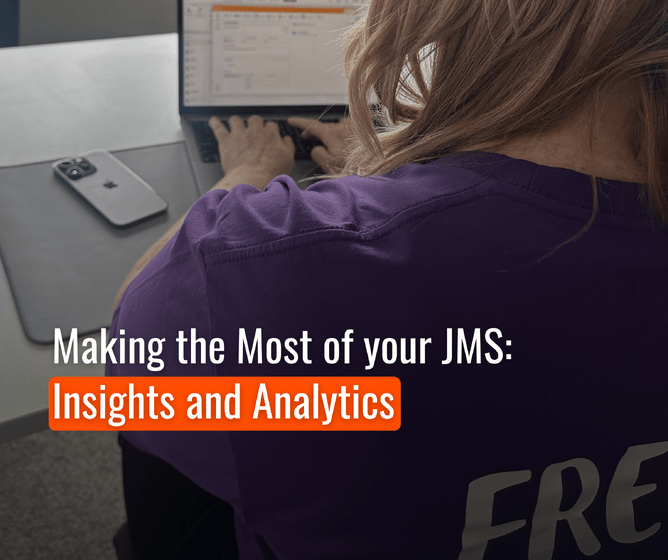Your software can provide information to drive your business growth.
A good job management software can do more than just streamline your administration. With the right features, used correctly, you can draw out benefits that will have a significant impact on the financial performance and long-term growth of your business.
A lot of data gets put into your job management app every day: hours worked, costs, invoices, job and customer details, timeframes, and more. It’s keeping records of everything that goes on in your operations, whether you use them or not. So why not take advantage?
Insights and analytics
JMS platforms can organise your workflow, store data about jobs and customers, enable communication, schedule, invoice, and generally make life a lot easier by automating or streamlining a lot of small, repetitive tasks. They are productivity rocket fuel, if you are using them to their full advantage.
However, most of these popular job management tools also have reporting and insights features that you can use to improve your financial management and grow your business. For example, ServiceM8 can provide revenue reports, including job profitability and revenue by job category, staff timesheet reports, and custom reports. Fergus provides a comprehensive financial reporting feature that makes it easy to keep an eye on your business health, job performance, and staff performance. Functions like these can:
Enable data-driven decisions
Improve efficiency
Clarify which job types are most profitable
Offer a better understanding of client needs and preferences
Help with cash flow management
Knowledge is power; data is a crucial planning resource. If you aren’t using these reporting features to inform your business decisions, you certainly should be!
Which metrics?
The first step in taking full advantage of the business analytics powers of your JMS is knowing which information you should be tracking. Although each business is different, the following are some key metrics that will always prove informative:
Staff efficiency and performance
Resource and material costs
Operating costs
Revenue by job, job category, and overall
Net profit
Profit margins
Each business owner’s approach will be different, and the reports you choose to pull from your JMS won’t be the same as the next person’s. However, considering which metrics will serve you best—and tracking them—is well worth the effort and time investment.
Looking forward
Planning for the future is most effective when backed with data from the past! A solid and accurate picture of your financial situation is the foundation you need to predict future trends, anticipate growth, and strategically plan for where you’d like to take your business.
Having real data from your specific business is perhaps the best tool in your toolbox as an ambitious business owner. Combined with knowledge of the markets, current events, and any other outside factors it makes planning not only possible but effective. If the business side of things is not your forte, there are plenty of advisory services available to help—check out this trades-focused list compiled by the team at Released!
To track metrics and make the most of the information a JMS platform provides, you’ll need to make sure you’re using the software that suits your business—and using it properly. The FreeUp team has your back when it comes to all things JMS. Get in touch and let’s get you set up!



